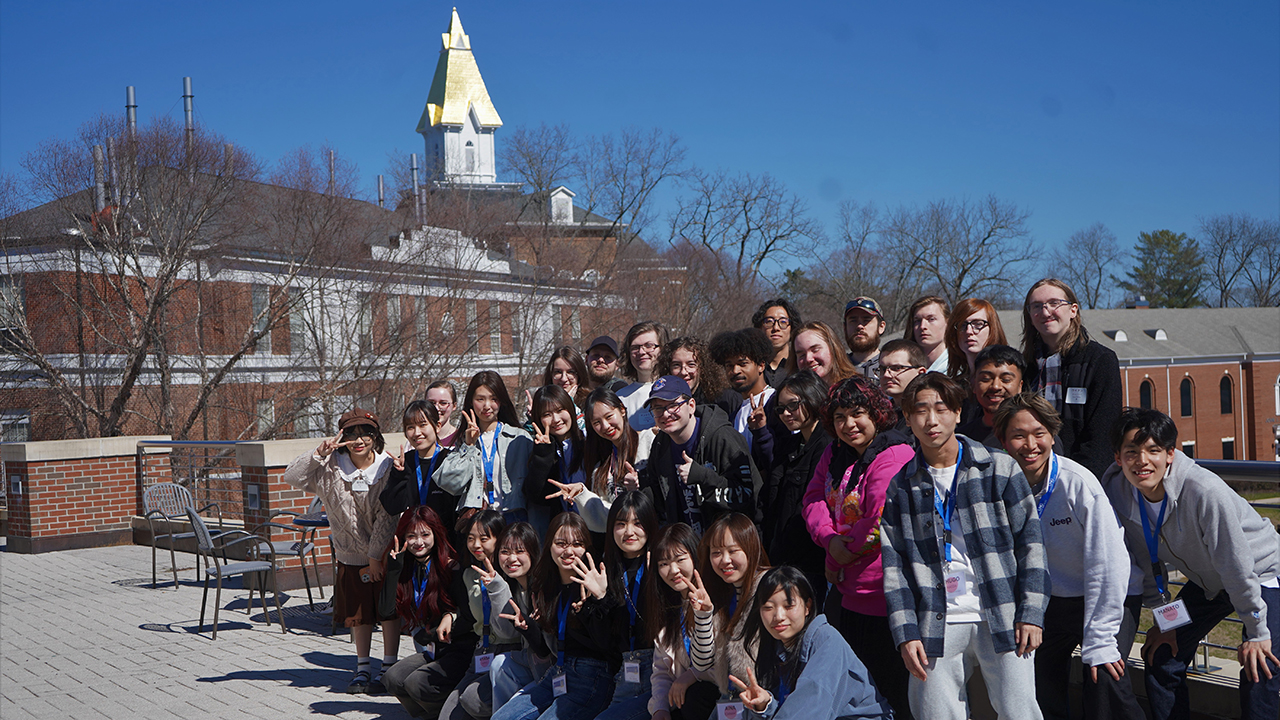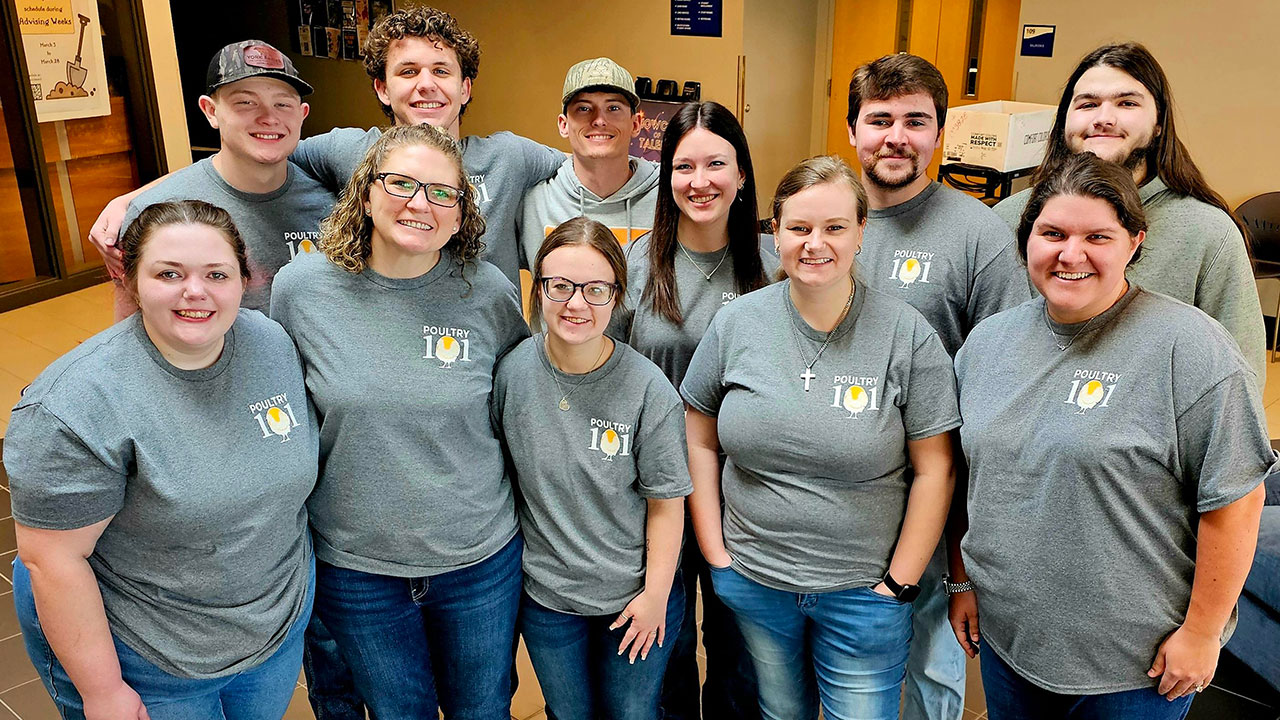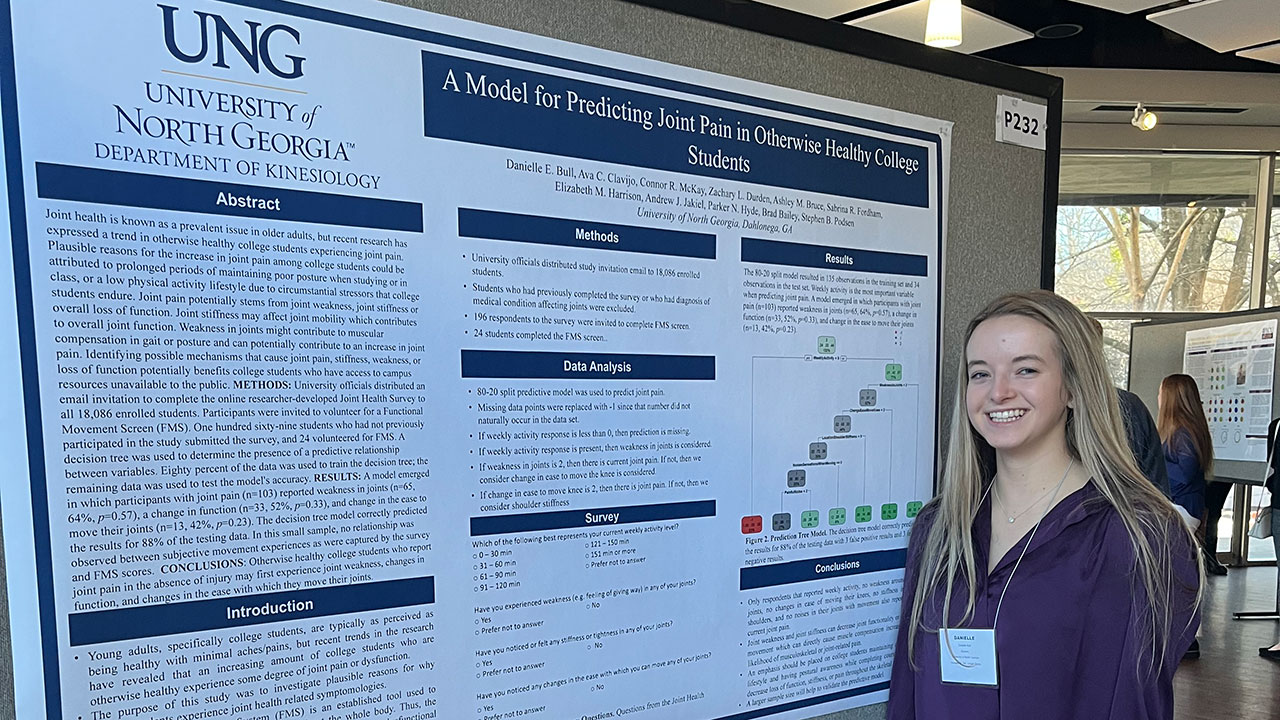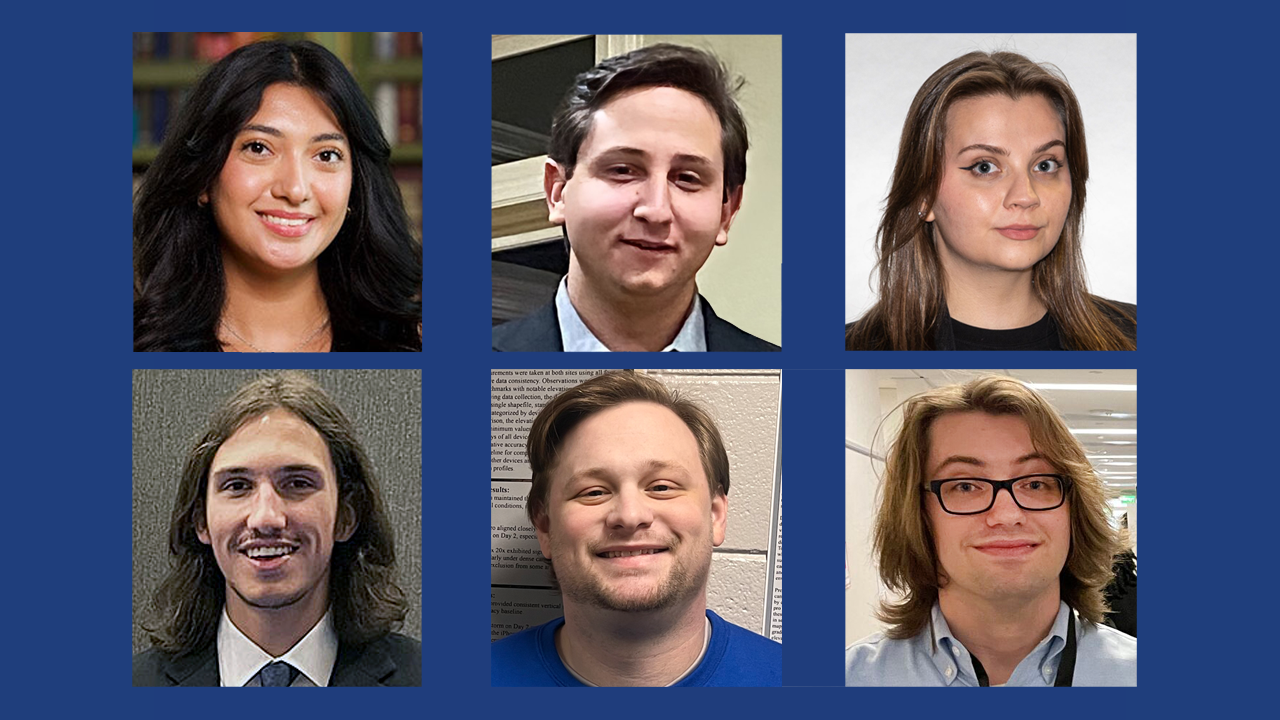Faculty and staff incentivized for discovering ways to increase student learning and research

Article By: Staff
University of North Georgia (UNG) faculty have responded to President Bonita Jacobs’ challenge to increase scholarly activity and innovation by devising projects ranging from capturing a range of real-world experiences with 360-degree cameras and crafting a Spanish course for law enforcement to producing a short film about a postapocalyptic world. Now, they will implement those ideas through the Presidential Incentive Awards program.
She initiated the program in 2013 to incentivize faculty and staff scholarship in its many forms, ranging from research to creative innovations.
"Since launching the Presidential Initiative Awards program, I am proud to have awarded more than $1 million in support of more than 168 professional development, research and innovation projects across UNG’s campuses," Jacobs said. "These awards are a key investment in our faculty and staff, and the knowledge and expertise gained, the improved practices, and the resulting initiatives have significantly enhanced the educational experience of our students."
The three types of awards are: semester allocating up to $12,000 with a full release from teaching and service for one semester, summer for $10,000 and innovation for $5,000. Each award allows professors time and money to focus on research, scholarship and creative activities within the calendar year.
The incentives are working, said Dr. Andy Novobilski, associate provost for research and engagement and chief research officer at UNG.
"There was an increase in both the number of applicants and the caliber of the work being proposed," he said. "It has made the awards a lot more competitive."
This year, almost $350,000 was awarded to 43 UNG faculty and staff members, including Shawn Rice, Dr. Elizabeth Combier and Allison Hogue.
Rice, a simulation technologist in UNG's College of Health Sciences and Professions, plans to use his more than $4,200 award to buy two stereoscopic 360-degree video cameras. The cameras will be used to record specific experiences such as a health care procedure to be used by UNG students.
For example, in the simulation room, Rice could put the camera where a patient's head would be and record a student treating the patient.
"After the simulation, it can show the student what it was like from the patient's perspective," he said. "You can see how often your back was to the patient or how often a question wasn't answered."
Rice said the camera could also put students in places where they normally would not have access, such as a hospital room during an emergency procedure or an operating room.
"It can be impactful … because it is real," he said, indicating the 360-degree view is accompanied with sound. "You can get as close to the action as you can without really being there."
Rice added the camera could be used in several other situations. In fact, his ultimate goal is to help create videos for each department in the College of Health Science and Professions, then reach out to other UNG colleges.
Reaching out to another professional to help her students is exactly how Combier plans to use her award. The professor and department head of Spanish at UNG is scheduled for a trip to Matehuala, Mexico, to interview law enforcement officials there to prepare for her newest class, Spanish for Law Enforcement.
Combier hopes her first-hand account of the Mexican culture and its police force will provide a better understanding for criminal justice majors and future law enforcement officials who may deal with the Hispanic population.
"We need them to communicate with the Hispanic community and build bridges," she said, explaining the Latino community in Georgia, and particularly in Gainesville, is growing. "Knowing some of the language and culture is key to understanding the people."
Hogue, a lecturer of film and digital media at UNG, plans to use her $5,000 award to introduce audiences to her vision of a postapocalyptic world. She will shoot a short film, "Dead Winter," in Gainesville, using film industry professionals and UNG students as crew members.
"As a former film student, I remember how beneficial it was to make industry connections outside of the university," said Hogue, who recently worked for a few days on the reality show "Shark Tank." "I want to give students the chance to work with professionals and make those connections, because when they graduate they can reach out to them for potential work in the industry."
A full list of the Presidential Incentive Award winners is available on the UNG website.
Presidential Incentive Awards
Semester awards
- Mary Ellen Oesterle (Health Sciences)$12,000
- H Scott (Arts & Letters) $1,200
- Robb Sinn (Science and Math) $11,993
- Mengyi Ying (Science and Math) $11,983
Summer awards
- Erin Barding (Science & Math) $9,958
- William Black (Business) $10,000
- Donna Danns and George Danns (Business, Arts & Letters) $10,000
- Yi Deng (Arts & Letters) $10,000
- Benjamin Garner (Business) $10,000
- Michael Gove (Business) $9,904
- Yongseung Han, Mike Ryan, Kelly Manley and Christopher Serkan (Business, Science & Math) $1,789
- Danielle Hartsfield (Education) $9,190
- Lauren Johnson and Kelly Henderson (Education) $10,000
- Adam Jordan (Education) $9,997
- Esther Morgan-Ellis (Arts & Letters) $9,699
- David Patterson (Science & Math) $9,411
- Zechariah Pierce (Arts & Letters) $8,487
- Tiffany Rogers (Health Sciences) $10,000
- Christopher Seminack (IESA) $9,983
- Tamara Spike (Arts & Letters) $9,782
- Yu Wang (Science & Math) $9,993
Innovation awards:
- Tamirat Abegaz (Business) $4,301
- William Balco (Arts & Letters) $4,952
- Dan Cabaniss and Lance Bardsley (Arts & Letters) $4,897
- Gina Childers, Donna Governor, Sonny Mantry, Greta Giles, Lesley Simanton-Coogan, Mark Spraker, Donna Gessell, Megan Foley and Gregory Feiden (Education, Science & Math, Arts & Letters) $2,400
- Elizabeth Combier (Arts & Letters) $2,000
- Harrison Davis (Health Sciences) $4,220
- Carolynn DeSandre (Health Sciences) $5,000
- James Diggs (Science & Math) $4,932
- Sheri Hardee (Education) $2,561
- Yunjuan He (Arts & Letters) $3,164
- Allison Hogue (Arts & Letters) $5,000
- Thinh Kieu and Phong Luu (Science & Math) $4,999
- Minsu Kim (Science & Math) $4,989
- Steven Kronenberg (Business) $5,000
- Mohan Menon (Business) $3,164
- Esther Morgan-Ellis (Arts & Letters) $4,994
- Carly Redding, Valerie Havill and Tony Zschau (Arts & Letters) $5,000
- Shawn Rice (Health Sciences) $4,298
- Livia Streit, Clarke Miller and Patricia Todebush (Science & Math) $4,900
- Yu Wang (Science & Math) $4,997
- Carly Womack-Wynne (Global Engagement) $5,000
- Mingyuan Yan (Business) $4,980



